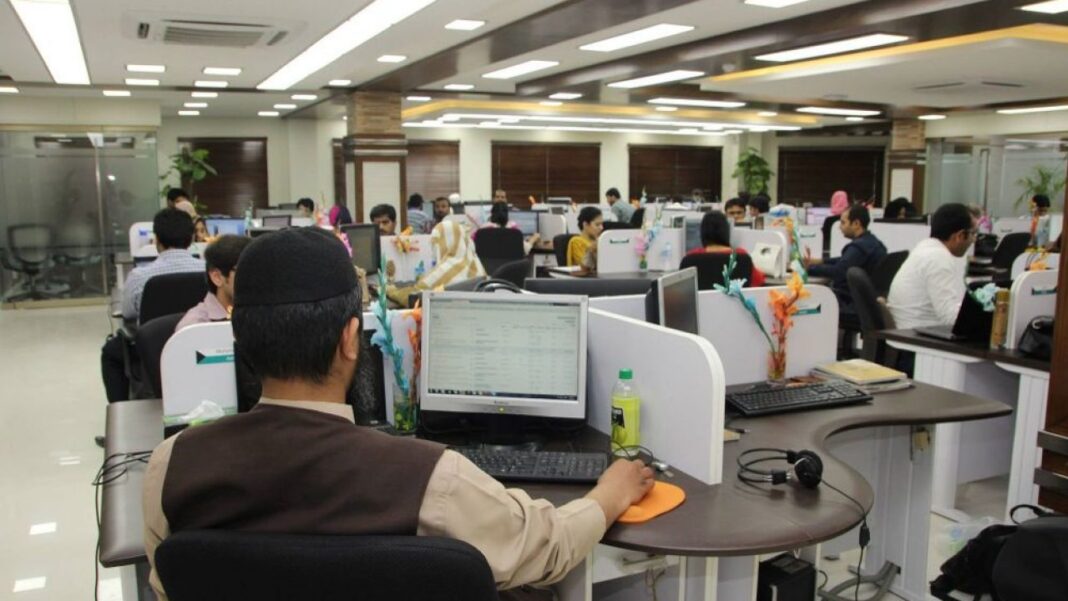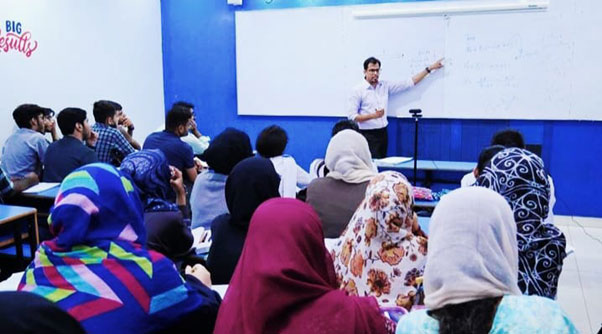By: Shehnaz Khattak
Amidst the bustling rhythms of progress and the echoes of ambition, a formidable challenge casts its shadow over Pakistan’s journey toward prosperity: the enigmatic specter of skill mismatch. Like a puzzle with pieces that don’t quite fit, this critical issue poses a substantial obstacle to economic growth and threatens to exacerbate the specter of unemployment haunting the nation
In the bustling corridors of industry, the vital sectors of information technology, healthcare, engineering, and technical fields stand in dire need of skilled professionals. According to recent reports, Pakistan’s IT industry is grappling with a shortage of over 30,000 qualified professionals, including expertise in artificial intelligence, cybersecurity, and software development. Similarly, the healthcare sector is facing a shortage of around 25,000 doctors and 60,000 nurses, adversely impacting the quality and accessibility of healthcare services. The scarcity of qualified workers has become an undeniable hurdle, driving up labor costs and causing businesses to labor under the burden of inefficiencies. A survey of industries conducted by leading business associations reveals that nearly 60% of employers are finding it difficult to recruit the right talent, leading to increased operational expenses and reduced competitiveness.
The aspirations of recent graduates are met with the cold reality of an ever-widening skills gap. According to recent labor market surveys, almost 40% of recent graduates report difficulty finding suitable employment within their chosen fields due to a mismatch between their skills and the job market demands. This creates a paradox where, on the one hand, businesses seek qualified professionals, while on the other hand, fresh graduates find themselves lacking the necessary expertise and relevant work experience.
The educational voyage has, at times, seemed adrift, emphasizing theoretical knowledge while neglecting the vital moorings of practical skills and hands-on experience. A review of the national education system indicates a skewed emphasis on theoretical instruction in many fields, leaving graduates ill-equipped to tackle the real-world challenges presented by the job market. Conversely, a peculiar surplus emerges in the realm of less-demanded fields. According to official data, social sciences and humanities graduates comprise approximately 40% of all university graduates, while the job market’s demand for such graduates remains relatively low. This results in a vast pool of underutilized human capital.
The root causes of this dissonance are myriad. Within the halls of academia, the emphasis on theoretical instruction overshadows the cultivation of tangible abilities sought by industries. A lamentable lack of collaboration between educational institutions and businesses perpetuates the disconnection between what is taught and what is required. Moreover, the burgeoning population of Pakistan poses a multifaceted challenge, wherein the supply of skilled workers struggles to meet the surging demand.
However, amidst these challenges lies a beacon of hope—a collective call to action. Enacting comprehensive curriculum reforms that forge a harmonious bond between theory and practice, educational institutions can mold graduates capable of navigating the shifting tides of the professional world.
Through the corridors of opportunity, vocational training and technical education beckon, offering a gateway for those seeking an alternative path to their dreams. By fostering robust ties between industries and academia, we can chart a course towards understanding the needs of businesses and tailoring education to align with market requirements. Standardized skill assessments, like a guiding constellation, can help illuminate the talents of individuals, irrespective of their learning journeys, empowering employers to make informed hiring decisions. Embracing the spirit of entrepreneurship, we kindle the embers of innovation that ignite a myriad of job opportunities, illuminating a brighter path towards progress and diversification.
In conclusion, the pursuit of a resolute solution to Pakistan’s skill mismatch challenge is not merely a journey but a profound expedition towards prosperity. By forging an unwavering alliance between the government, educational institutions, and the private sector, we can traverse the seas of uncertainty, illuminating the way forward towards a brighter horizon—a skilled workforce propelling economic growth and paving the way to a more promising and inclusive future.
The writer is a Ph.D. scholar at PIDE, Islamabad, and can be reached at [email protected]






